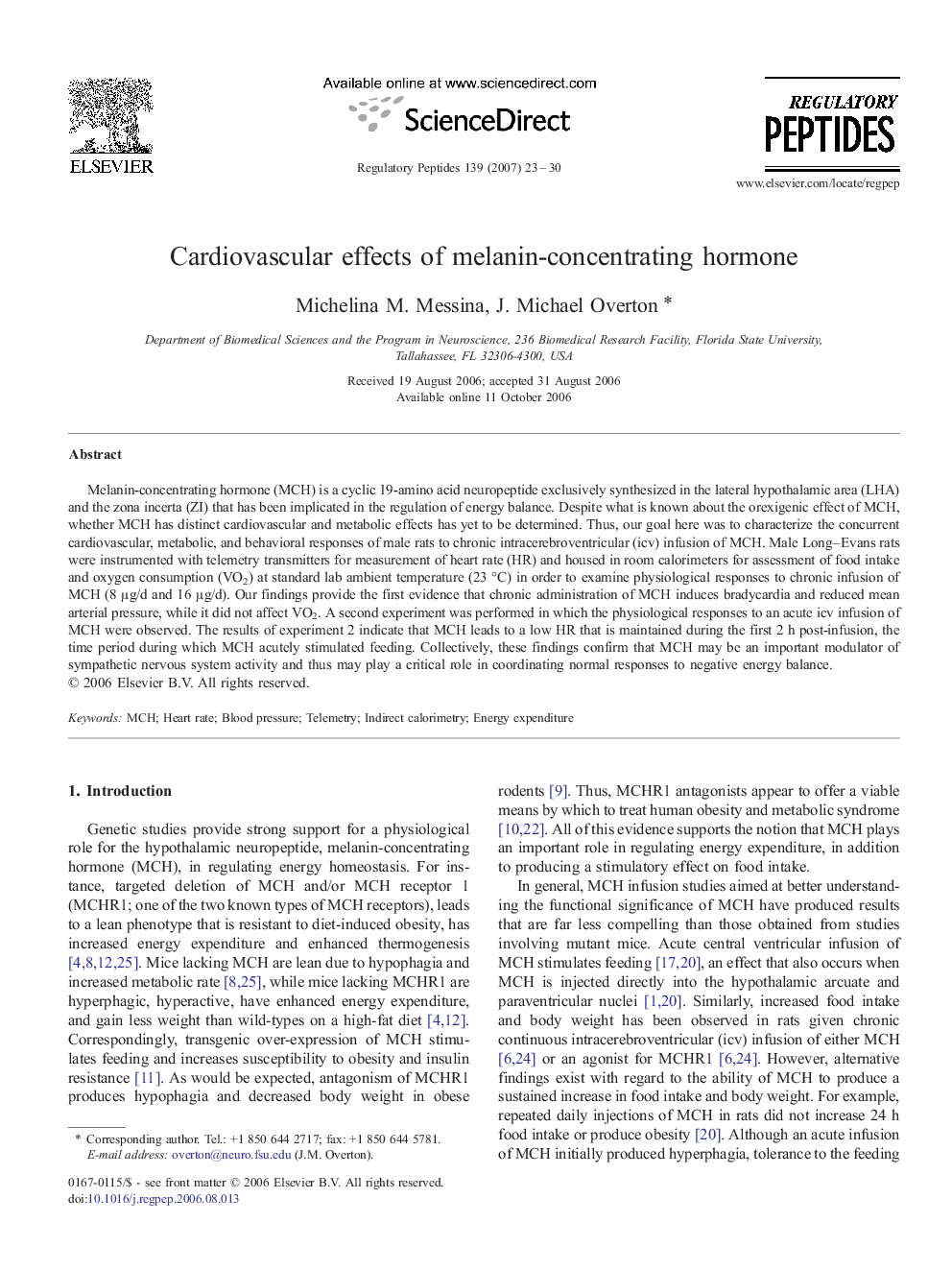| Article ID | Journal | Published Year | Pages | File Type |
|---|---|---|---|---|
| 2023435 | Regulatory Peptides | 2007 | 8 Pages |
Abstract
Melanin-concentrating hormone (MCH) is a cyclic 19-amino acid neuropeptide exclusively synthesized in the lateral hypothalamic area (LHA) and the zona incerta (ZI) that has been implicated in the regulation of energy balance. Despite what is known about the orexigenic effect of MCH, whether MCH has distinct cardiovascular and metabolic effects has yet to be determined. Thus, our goal here was to characterize the concurrent cardiovascular, metabolic, and behavioral responses of male rats to chronic intracerebroventricular (icv) infusion of MCH. Male Long-Evans rats were instrumented with telemetry transmitters for measurement of heart rate (HR) and housed in room calorimeters for assessment of food intake and oxygen consumption (VO2) at standard lab ambient temperature (23 °C) in order to examine physiological responses to chronic infusion of MCH (8 μg/d and 16 μg/d). Our findings provide the first evidence that chronic administration of MCH induces bradycardia and reduced mean arterial pressure, while it did not affect VO2. A second experiment was performed in which the physiological responses to an acute icv infusion of MCH were observed. The results of experiment 2 indicate that MCH leads to a low HR that is maintained during the first 2 h post-infusion, the time period during which MCH acutely stimulated feeding. Collectively, these findings confirm that MCH may be an important modulator of sympathetic nervous system activity and thus may play a critical role in coordinating normal responses to negative energy balance.
Related Topics
Life Sciences
Biochemistry, Genetics and Molecular Biology
Biochemistry
Authors
Michelina M. Messina, J. Michael Overton,
